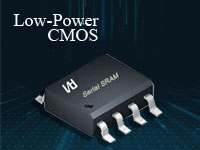Automotive becomes the largest market for MCU
China is the world's largest automobile producer and marketer, and it also has the world's largest automotive MCU market. At present, about 100 MCUs are used in an average car. According to this estimation, the total MCU market in China is about 2 billion, and the market size is as high as tens of billions of yuan. With the rise of the four new automotive modernizations, the demand for MCUs will further increase.
Automotive is the application market with the largest proportion of MCU and the most potential. According to statistics, in 2019, automotive MCU sales accounted for 39% of MCU sales. At present, the automotive industry has entered the era of "new four modernizations" of intelligence, electrification, sharing, and networking, and the volume and specification requirements of automotive MCUs will further increase.
MCU is essential for automotive electronics
Common automotive chips are mainly divided into control chips, power semiconductors and sensors. Among them, MCU is the core chip of motion control, which is widely used in automotive electronics. Whether it is from body powertrain to body control, infotainment, assisted driving, or from engine control unit to control units such as wipers, windows, electric seats, air conditioning, etc., complex chips are inseparable from the realization of every function. With the support of the group, MCU plays a very important role in every application scenario. At the same time, the main drive and auxiliary motor control system of new energy vehicles is also an important application field for vehicle-specific MCUs.
Compared with consumer electronics MCUs such as traditional home appliances, smart homes, and game consoles, automotive MCUs have strict requirements for reliability, which are mainly reflected in the dimensions of operating temperature range, communication capabilities, and safety mechanisms.
Infineon’s Greater China Smart Driving Market Manager Yu Chenjie told China Electronics News that automotive MCUs mainly focus on six indicators, including high reliability, complete safety mechanisms, hardware encryption mechanisms, rich communication interfaces, and low power consumption. And a wide temperature working range.
The operating temperature of the automotive-regulated MCU must meet -40°C to 85°C, and may even reach 150°C, and it must be able to withstand the pressures of thermal shock, electromagnetic compatibility, and anti-interference. This has formed a certain technical threshold for automotive chip suppliers.
Based on zero tolerance for safety accidents and long-term stable operation of parts and components, the automotive industry has extremely high requirements for anti-interference ability, reliability and stability of semiconductor products.
Automotive is the application market with the largest proportion of MCU and the most potential. According to statistics, in 2019, automotive MCU sales accounted for 39% of MCU sales. At present, the automotive industry has entered the era of "new four modernizations" of intelligence, electrification, sharing, and networking, and the volume and specification requirements of automotive MCUs will further increase.
MCU is essential for automotive electronics
Common automotive chips are mainly divided into control chips, power semiconductors and sensors. Among them, MCU is the core chip of motion control, which is widely used in automotive electronics. Whether it is from body powertrain to body control, infotainment, assisted driving, or from engine control unit to control units such as wipers, windows, electric seats, air conditioning, etc., complex chips are inseparable from the realization of every function. With the support of the group, MCU plays a very important role in every application scenario. At the same time, the main drive and auxiliary motor control system of new energy vehicles is also an important application field for vehicle-specific MCUs.
Compared with consumer electronics MCUs such as traditional home appliances, smart homes, and game consoles, automotive MCUs have strict requirements for reliability, which are mainly reflected in the dimensions of operating temperature range, communication capabilities, and safety mechanisms.
Infineon’s Greater China Smart Driving Market Manager Yu Chenjie told China Electronics News that automotive MCUs mainly focus on six indicators, including high reliability, complete safety mechanisms, hardware encryption mechanisms, rich communication interfaces, and low power consumption. And a wide temperature working range.
The operating temperature of the automotive-regulated MCU must meet -40°C to 85°C, and may even reach 150°C, and it must be able to withstand the pressures of thermal shock, electromagnetic compatibility, and anti-interference. This has formed a certain technical threshold for automotive chip suppliers.
Based on zero tolerance for safety accidents and long-term stable operation of parts and components, the automotive industry has extremely high requirements for anti-interference ability, reliability and stability of semiconductor products.
CONTACT US
USA
Vilsion Technology Inc.
36S 18th AVE Suite A,Brington,Colorado 80601,
United States
E-mail:sales@vilsion.com
Europe
Memeler Strasse 30 Haan,D 42781Germany
E-mail:sales@vilsion.com
Middle Eastern
Zarchin 10St.Raanana,43662 Israel
Zarchin 10St.Raanana,43662 Israel
E-mail:peter@vilsion.com
African
65 Oude Kaap, Estates Cnr, Elm & Poplar Streets
Dowerglen,1609 South Africa
E-mail:amy@vilsion.com
Asian
583 Orchard Road, #19-01 Forum,Singapore,
238884 Singapore
238884 Singapore
E-mail:steven@vilsion.com
